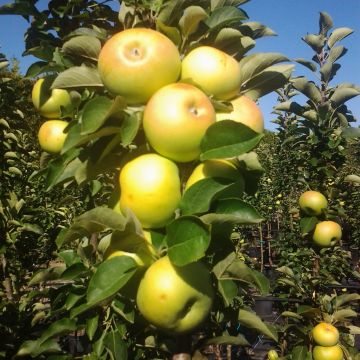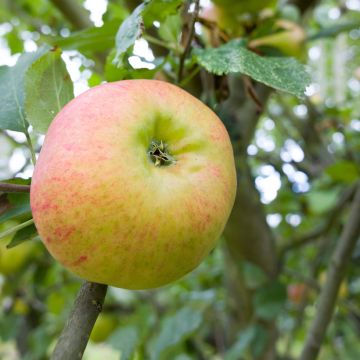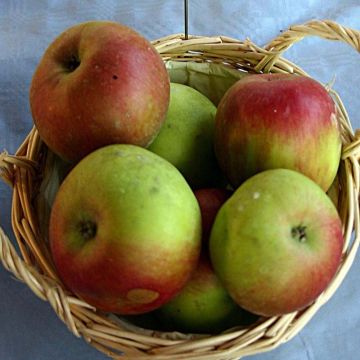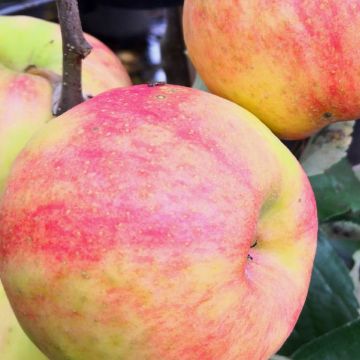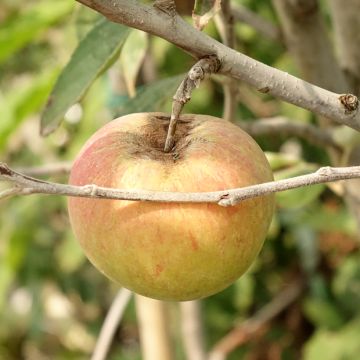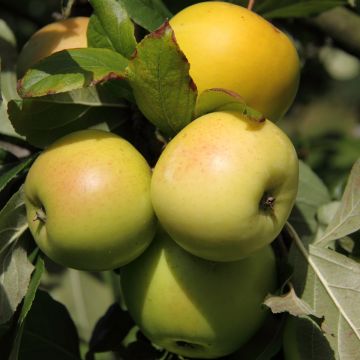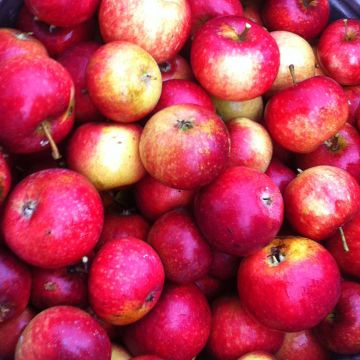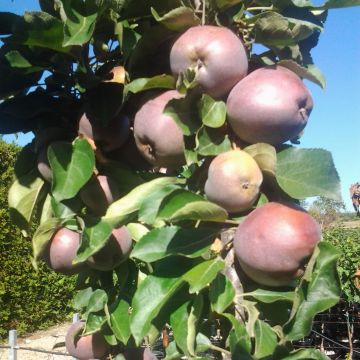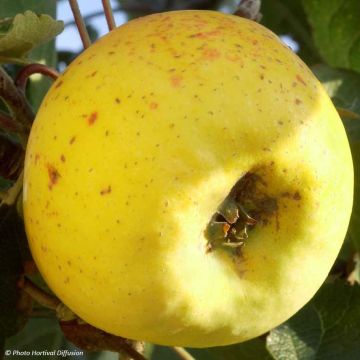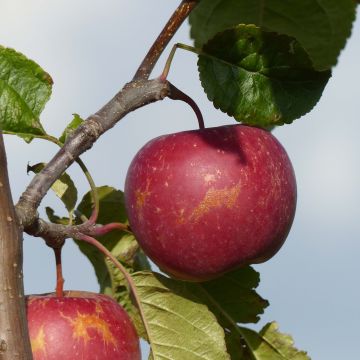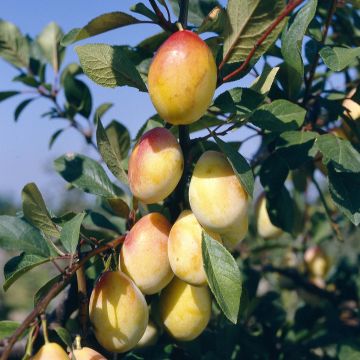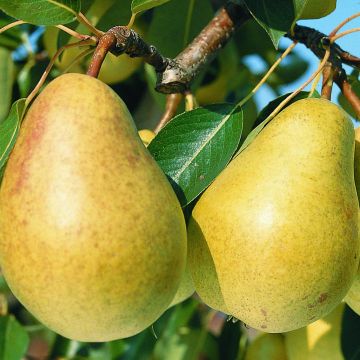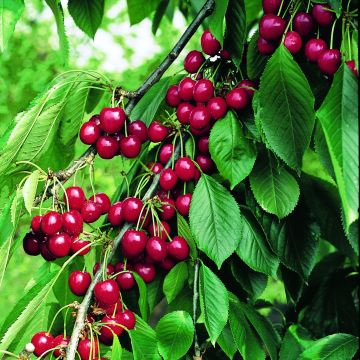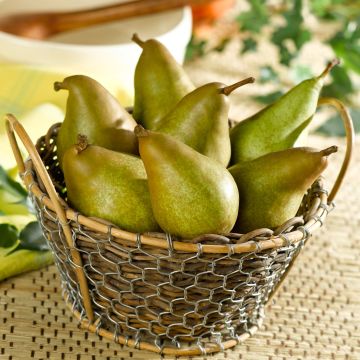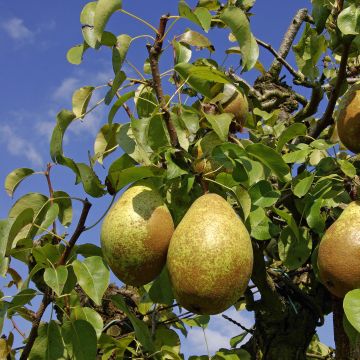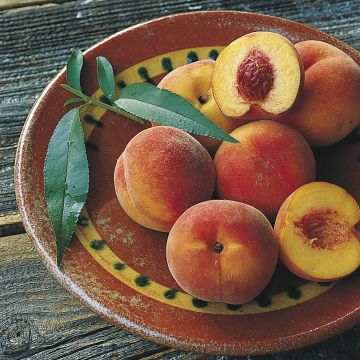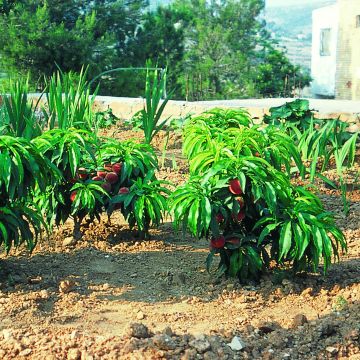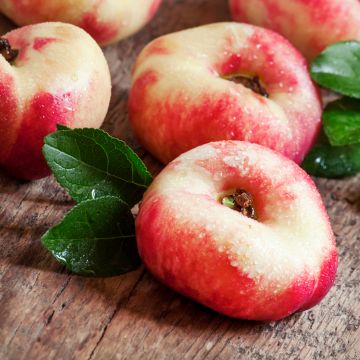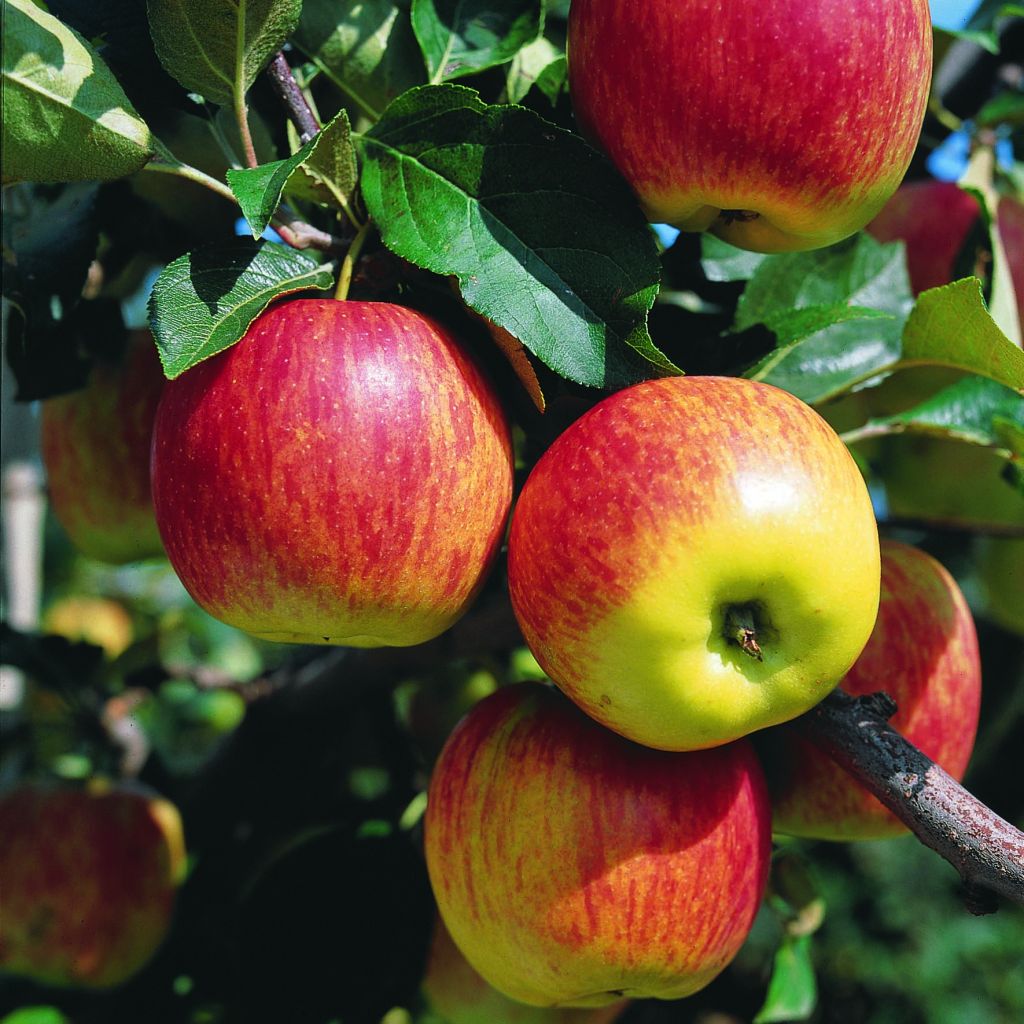

Apple Tree Delbarestivale - Malus domestica
Apple Tree Delbarestivale - Malus domestica
Malus domestica Delbarestivale® 'Monidel'
Apple, Orchard apple, Table apple, Cultivated apple
Special offer!
Receive a €20 voucher for any order over €90 (excluding delivery costs, credit notes, and plastic-free options)!
1- Add your favorite plants to your cart.
2- Once you have reached €90, confirm your order (you can even choose the delivery date!).
3- As soon as your order is shipped, you will receive an email containing your voucher code, valid for 3 months (90 days).
Your voucher is unique and can only be used once, for any order with a minimum value of €20, excluding delivery costs.
Can be combined with other current offers, non-divisible and non-refundable.
Home or relay delivery (depending on size and destination)
Schedule delivery date,
and select date in basket
This plant carries a 6 months recovery warranty
More information
We guarantee the quality of our plants for a full growing cycle, and will replace at our expense any plant that fails to recover under normal climatic and planting conditions.
Description
The 'Delbarestivale'® ('Monidel') Apple Tree is a variety that stands out for its early character as its fruits are harvested and consumed in summer, from late August to September. Yellow with red stripes, these medium-sized apples are of good quality, with firm, crunchy flesh and a balanced flavour. Fragrant, they exude a scent of fennel mixed with anise.
The 'Delbarestivale'® apple is a very good eating apple, refreshing, which is best eaten immediately after harvest and benefits from good storage.
Hardy, this apple tree can withstand temperatures down to -20°C (-4°F) and blooms in mid-April. It is a variety that is quite resistant to diseases and adapts well throughout Europe. This apple tree is not self-fertile, so it should be planted near varieties that bloom at the same time, such as 'Tentation', 'Royal Gala', or 'Delbard Jubilé', to ensure pollination.
The apple tree (Malus domestica) is a fruit tree that belongs to the Rosaceae family. It is grown almost everywhere in the world and includes an infinite number of varieties, both ancient and modern, that produce apples of varying sizes and flavors. Apple trees are native to Europe, including France, where their presence dates back to antiquity.
Very hardy, the 'Delbarestivale' variety can easily withstand temperatures down to -20°C (-4°F) and blooms very late, usually in mid-May, which protects its flowers from late frosts. It is a disease-resistant variety, ideal for cold climates and mountainous regions. This apple tree is not self-fertile, so for abundant fruiting, it should be planted near varieties that bloom at the same time.
The domestic apple tree does not exceed ten metres in height, with a similar width. Its size can be much smaller depending on the vigour of the rootstock used. This fruit tree generally has a tall trunk that naturally spreads out. It can take on different forms (bush, half-standard, standard...) and can be pruned in many ways (column, cordon, espalier...). The leaves of the apple tree are deciduous and arranged alternately on the branches. Their lamina is ovate and dentate. They have a dark green upper surface and a whitish lower surface, slightly fuzzy. In spring, the apple tree bears white or pinkish-white flowers grouped in corymbs. The apple flowers have 5 petals and surround a core composed of about 20 stamens. They give rise to fleshy, spherical fruits filled with seeds. Their colour, size, flavour, and storage duration vary depending on the variety.
The apple tree can be grown in all climates, but it particularly thrives in temperate regions, preferably humid ones, such as Normandy. It enjoys full sun in reasonably moist and rich soil. It is traditionally planted in the heart of an orchard but can also be grown as a standalone tree or even as a hedge. It is an easy fruit tree that requires at least some thinning pruning. Proper fruiting pruning will prevent alternate bearing (fruiting every other year). An annual or biennial application of well-decomposed compost also enhances the productivity of apple trees. Apples are harvested in late summer and autumn and can sometimes be stored for a long period in a cellar and consumed until early spring. Apples can be used in a wide variety of culinary preparations (compote, pies, jellies), but can also be used to make apple juice or cider.
For transportation reasons, our tallest scions may be pruned before shipping. They are suitable for all common training systems: cordons, espaliers, bushes, half-standards, and low standards, except for tall standards. If you would like more information or advice on training your fruit trees, please do not hesitate to contact us.
This fruit tree is delivered in a "ready-to-plant" root ball. When planting, the root ball should be planted as it is. The biodegradable tontine that surrounds the root ball and preserves the rootlets will decompose on its own during the plant's growth. By doing so, you ensure better establishment.
Report an error about the product description
Apple Tree Delbarestivale - Malus domestica in pictures
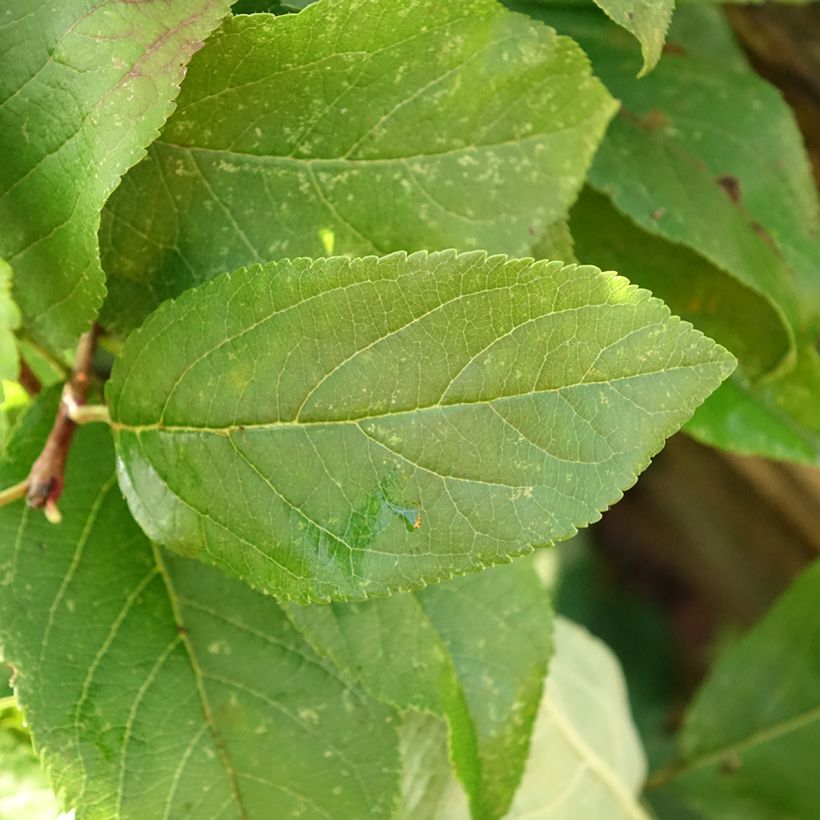

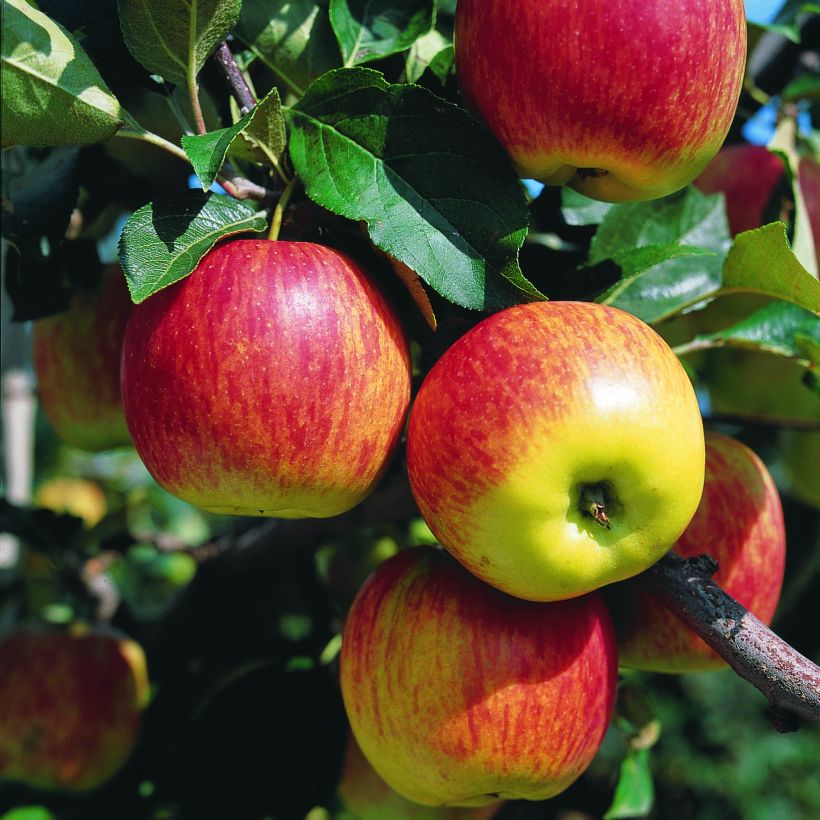

Plant habit
Fruit
Flowering
Foliage
Botanical data
Malus
domestica
Delbarestivale® 'Monidel'
Rosaceae
Apple, Orchard apple, Table apple, Cultivated apple
Cultivar or hybrid
M106 (Ready-to-plant root ball - Goblet)
Other Apple trees
View all →Planting and care
Choose a well-sunlit location for your 'Monidel'® |('Delbarestivale') Apple Tree . The soil can be slightly chalky or acidic, but not excessively so. Dig a wide planting hole at least 3 times the volume of the root ball. Simultaneously add organic matter (potting soil, compost...) and a base fertilizer such as crushed bark. Do not bury the graft collar. Stake if necessary. Water abundantly, even in winter, even if it rains. Fruit trees are ideally planted between October and March, avoiding freezing periods. Container-grown plants can be planted year-round except during periods of extreme heat or frost.
In winter, you can add a small handful of wood ash, rich in potassium, to improve fruiting. Watch out for possible aphid attacks during the season. A white powdery mildew caused by a fungus, powdery mildew, may appear on the leaves in summer, but it does not harm fruit development in gardens. Harvest takes place in September. Only store picked fruits. Store apples with the stem downwards, on shelves or in crates. Choose a preferably completely dark, dry and cool place, but frost-free.
Planting period
Intended location
Care
This item has not been reviewed yet - be the first to leave a review about it.
Similar products
Haven't found what you were looking for?
Hardiness is the lowest winter temperature a plant can endure without suffering serious damage or even dying. However, hardiness is affected by location (a sheltered area, such as a patio), protection (winter cover) and soil type (hardiness is improved by well-drained soil).

Photo Sharing Terms & Conditions
In order to encourage gardeners to interact and share their experiences, Promesse de fleurs offers various media enabling content to be uploaded onto its Site - in particular via the ‘Photo sharing’ module.
The User agrees to refrain from:
- Posting any content that is illegal, prejudicial, insulting, racist, inciteful to hatred, revisionist, contrary to public decency, that infringes on privacy or on the privacy rights of third parties, in particular the publicity rights of persons and goods, intellectual property rights, or the right to privacy.
- Submitting content on behalf of a third party;
- Impersonate the identity of a third party and/or publish any personal information about a third party;
In general, the User undertakes to refrain from any unethical behaviour.
All Content (in particular text, comments, files, images, photos, videos, creative works, etc.), which may be subject to property or intellectual property rights, image or other private rights, shall remain the property of the User, subject to the limited rights granted by the terms of the licence granted by Promesse de fleurs as stated below. Users are at liberty to publish or not to publish such Content on the Site, notably via the ‘Photo Sharing’ facility, and accept that this Content shall be made public and freely accessible, notably on the Internet.
Users further acknowledge, undertake to have ,and guarantee that they hold all necessary rights and permissions to publish such material on the Site, in particular with regard to the legislation in force pertaining to any privacy, property, intellectual property, image, or contractual rights, or rights of any other nature. By publishing such Content on the Site, Users acknowledge accepting full liability as publishers of the Content within the meaning of the law, and grant Promesse de fleurs, free of charge, an inclusive, worldwide licence for the said Content for the entire duration of its publication, including all reproduction, representation, up/downloading, displaying, performing, transmission, and storage rights.
Users also grant permission for their name to be linked to the Content and accept that this link may not always be made available.
By engaging in posting material, Users consent to their Content becoming automatically accessible on the Internet, in particular on other sites and/or blogs and/or web pages of the Promesse de fleurs site, including in particular social pages and the Promesse de fleurs catalogue.
Users may secure the removal of entrusted content free of charge by issuing a simple request via our contact form.
The flowering period indicated on our website applies to countries and regions located in USDA zone 8 (France, the United Kingdom, Ireland, the Netherlands, etc.)
It will vary according to where you live:
- In zones 9 to 10 (Italy, Spain, Greece, etc.), flowering will occur about 2 to 4 weeks earlier.
- In zones 6 to 7 (Germany, Poland, Slovenia, and lower mountainous regions), flowering will be delayed by 2 to 3 weeks.
- In zone 5 (Central Europe, Scandinavia), blooming will be delayed by 3 to 5 weeks.
In temperate climates, pruning of spring-flowering shrubs (forsythia, spireas, etc.) should be done just after flowering.
Pruning of summer-flowering shrubs (Indian Lilac, Perovskia, etc.) can be done in winter or spring.
In cold regions as well as with frost-sensitive plants, avoid pruning too early when severe frosts may still occur.
The planting period indicated on our website applies to countries and regions located in USDA zone 8 (France, United Kingdom, Ireland, Netherlands).
It will vary according to where you live:
- In Mediterranean zones (Marseille, Madrid, Milan, etc.), autumn and winter are the best planting periods.
- In continental zones (Strasbourg, Munich, Vienna, etc.), delay planting by 2 to 3 weeks in spring and bring it forward by 2 to 4 weeks in autumn.
- In mountainous regions (the Alps, Pyrenees, Carpathians, etc.), it is best to plant in late spring (May-June) or late summer (August-September).
The harvesting period indicated on our website applies to countries and regions in USDA zone 8 (France, England, Ireland, the Netherlands).
In colder areas (Scandinavia, Poland, Austria...) fruit and vegetable harvests are likely to be delayed by 3-4 weeks.
In warmer areas (Italy, Spain, Greece, etc.), harvesting will probably take place earlier, depending on weather conditions.
The sowing periods indicated on our website apply to countries and regions within USDA Zone 8 (France, UK, Ireland, Netherlands).
In colder areas (Scandinavia, Poland, Austria...), delay any outdoor sowing by 3-4 weeks, or sow under glass.
In warmer climes (Italy, Spain, Greece, etc.), bring outdoor sowing forward by a few weeks.






























